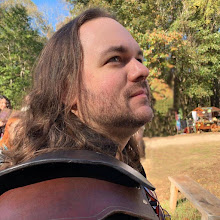
My parents recently moved out of Alaska and back down to Oregon where I was born. The reasons were many, but I think they had lived out the adventure in Alaska enough and were ready to return to a place close to home. That was a few months ago, and now Dad is about to start a new job in Salem, where I have never lived, but is relatively close to other family. That means that mom and dad will be getting a house in Salem and moving there, probably very quickly.
Well, this got me thinking. They'll be living in a house I've never been to, have no memories of and is new to them as well. While growing up, we moved several times. First we lived in apartments, then more apartments, then a duplex, then a move over the mountain to a house, then a mobile home on the farm, then an apartment in Alaska, and then a house where I spent my High School days until I moved out to live on a college campus, only returning for Summers. That's a lot of different buildings. All of which I grew up in.


Well, this got me thinking. They'll be living in a house I've never been to, have no memories of and is new to them as well. While growing up, we moved several times. First we lived in apartments, then more apartments, then a duplex, then a move over the mountain to a house, then a mobile home on the farm, then an apartment in Alaska, and then a house where I spent my High School days until I moved out to live on a college campus, only returning for Summers. That's a lot of different buildings. All of which I grew up in.

Compare that with my mom's parents, who have lived in their house for as long as I remember. I think mom spent most of her childhood in that house. If she didn't, I've never heard of the place she did. Dad's parents lived in a house in the same town as mom's parents that dad's brother is living in now, so his family is still growing up in that house. Teresa and I live about a 10 minute drive away from the house her dad grew up in, and the family still owns and uses. We visit her grandparents in South Carolina often enough in the house Teresa's mom grew up in. Even Teresa's parents house is where she spent most of her childhood.
So what I'm getting at is that I don't have that "one house you grew up in." I'm not saying that's a bad thing. It's just something that a lot of other people experienced that I didn't. I have memories of each place we lived. Good ones. But I can't really think of going back to any one of those places and calling it home. The house in Alaska probably is the closest thing to that, but that's probably because I have more recent and vivid memories of that one. It's not even the house I lived in the longest, though it may have been for my parents. I would say it's the same for my sister, but she lived in the Alaska house longer than I did, so she might think of that place as where she grew up. Even so, that house isn't around anymore for us to go back to, like the other examples above.

Even after college, I've been moving around a quite a bit. I lived in a townhouse after college, moved to NC for a few weeks and got married, then trucked it up to Boston to live in an apartment for awhile and then a two family home. Then back to North Carolina for a few months and then finally rented a house all to ourselves. One thing I am sure of, we're tired of moving. Another thing I'm sure of, is that we'll probably move again before we're really settled. And even then, I wonder, will we really settle? It seems I may have inherited some sort of nomadic tendencies from my parents, who still haven't settled to my knowledge.
So if you're reading this, I'm curious. Do you have a house you grew up in? Or do you have several houses? Which one feels the most like home? And can you still go back there if you want to? Out of all of the places we have lived, I think I would most like to go back to the farm. Being young and stupid, I wasted a lot of time living on the farm staying indoors. Now my fondest memories are of playing in the barn, the smell of the hay, and the things I did that were out of the ordinary like training a llama to walk over a bridge. So I'm a bit sad that I didn't do more of that when I had the chance. I wish I could do some of that over, but that being impossible, I might like to find a similar place to settle and finally live in a house I can grow up in.

